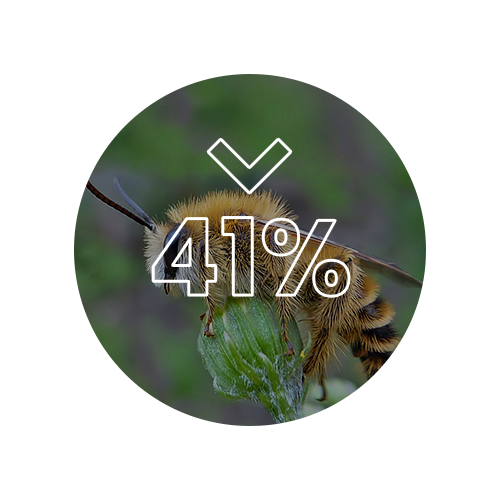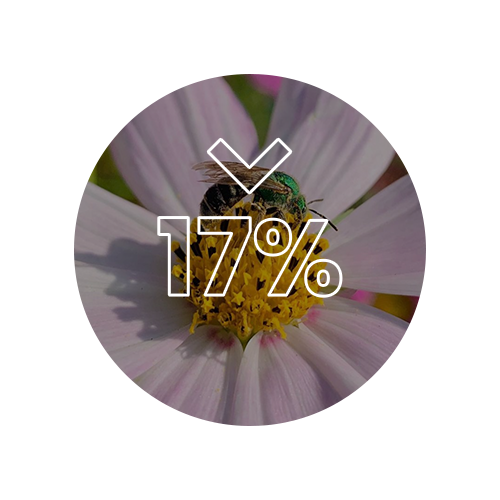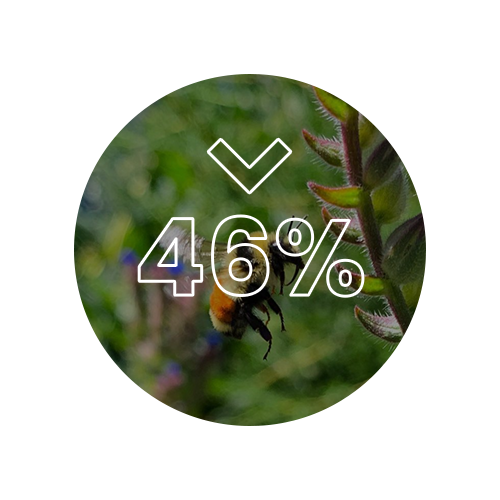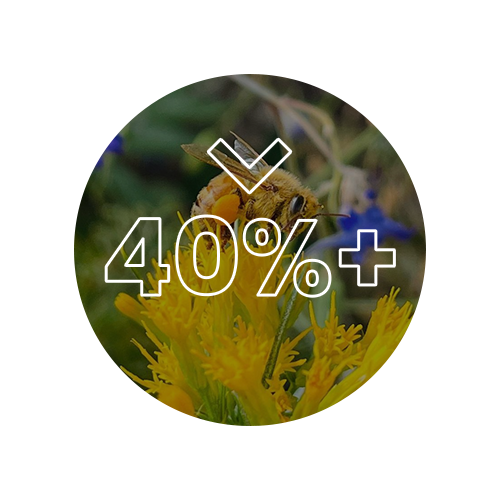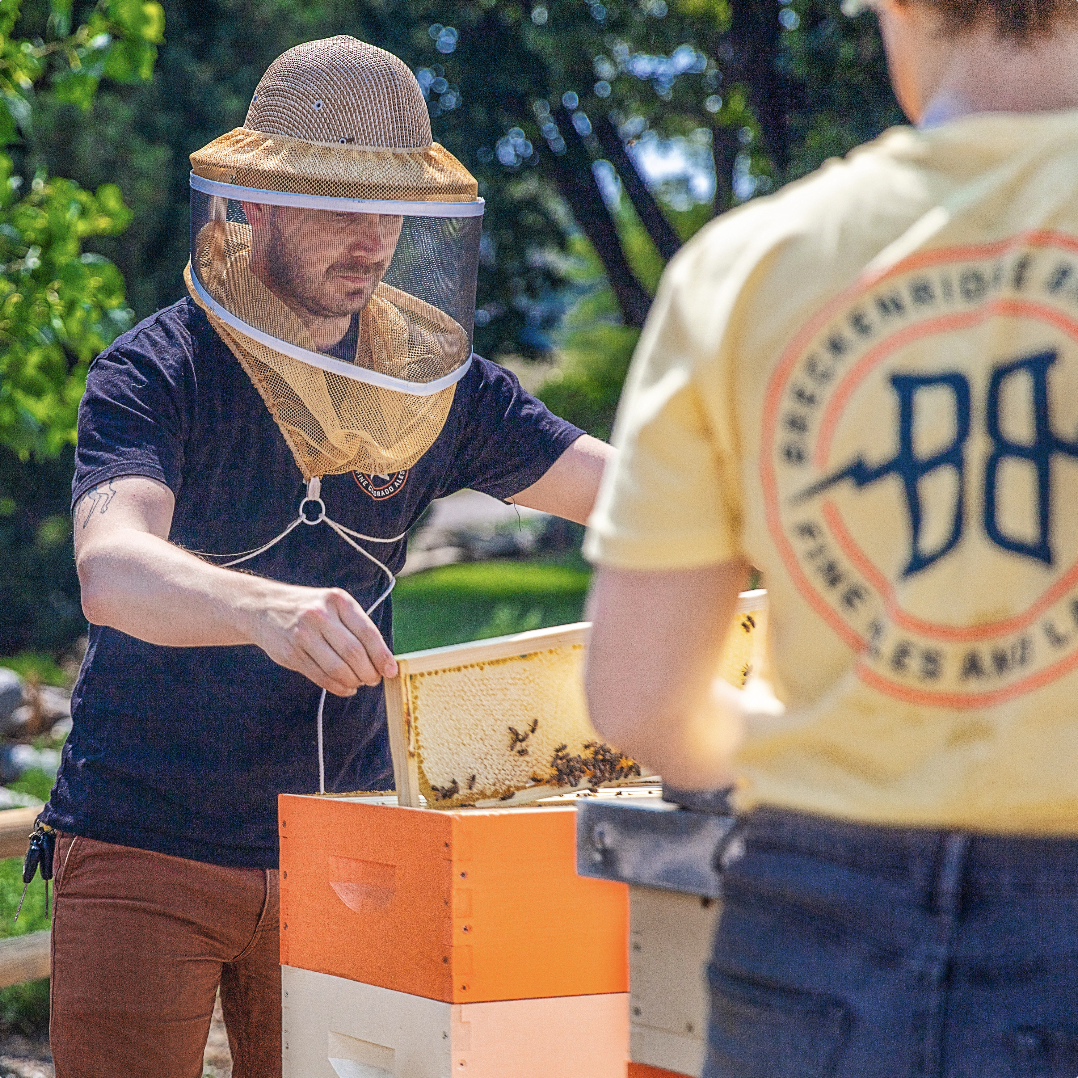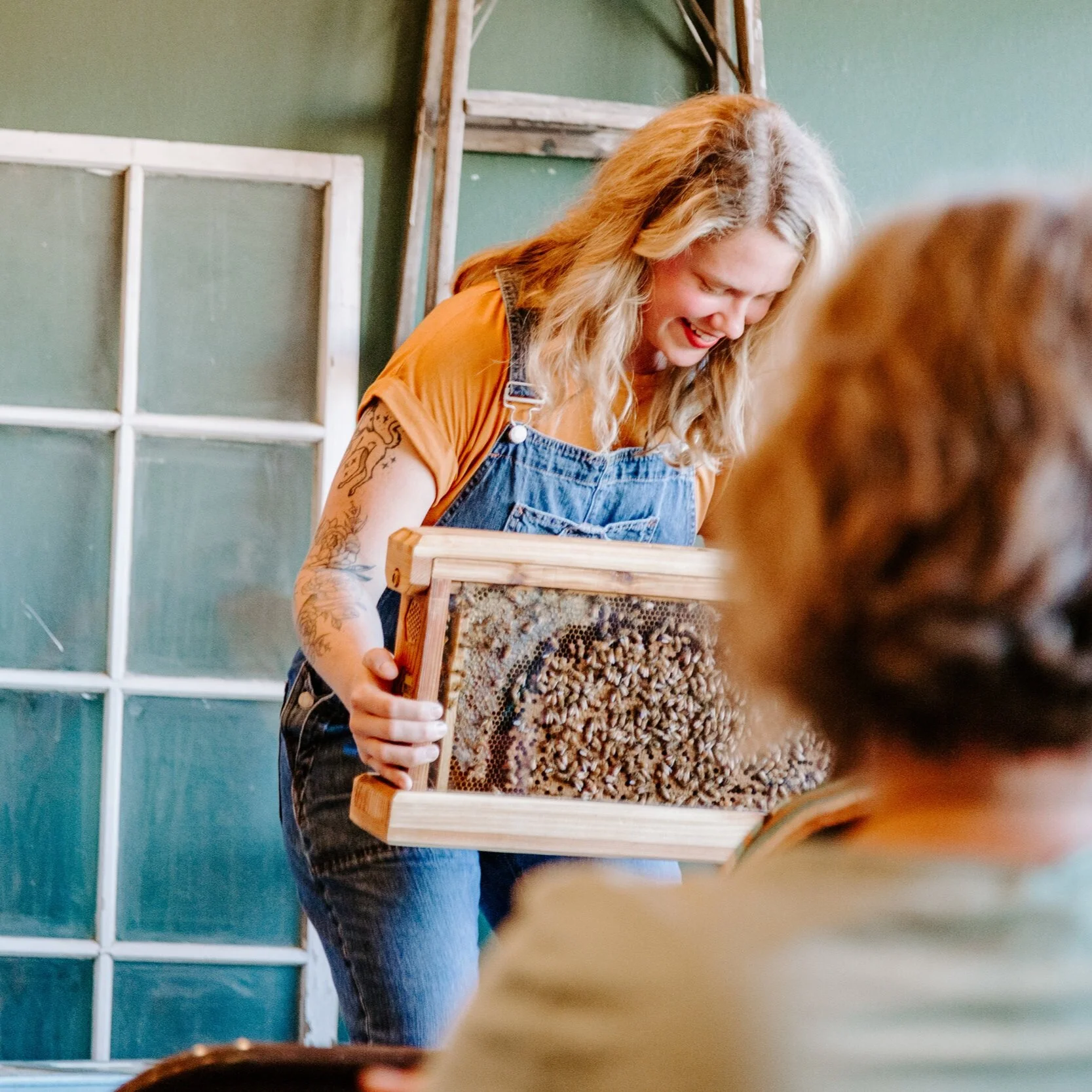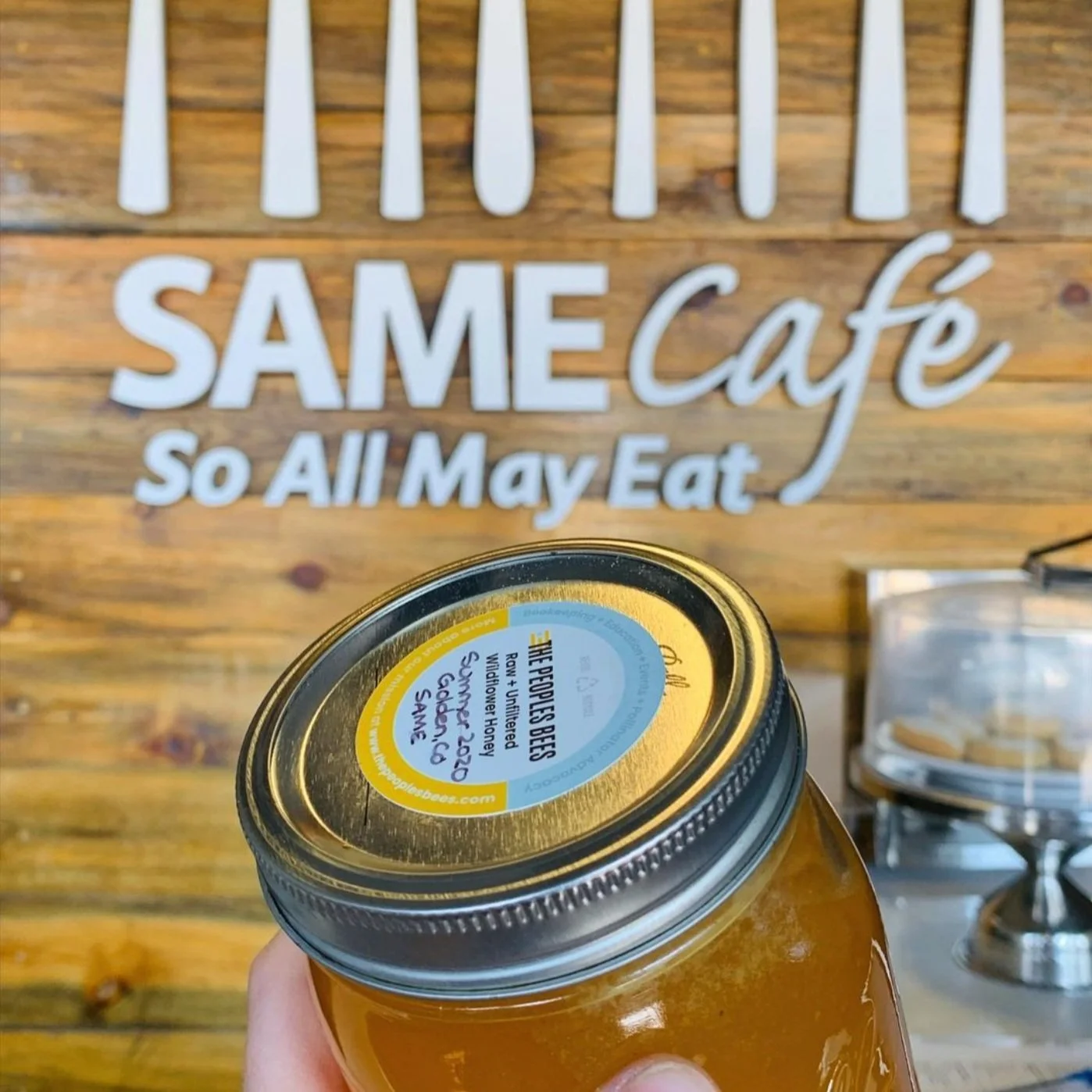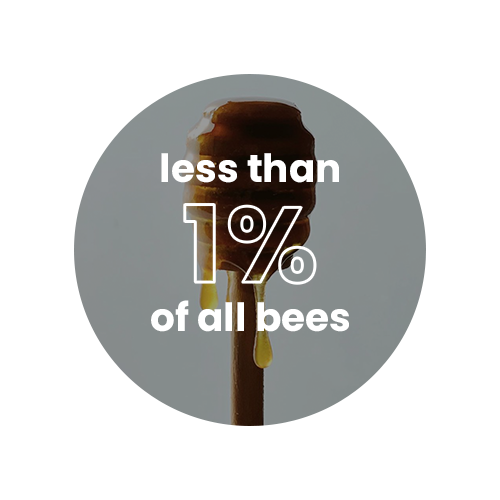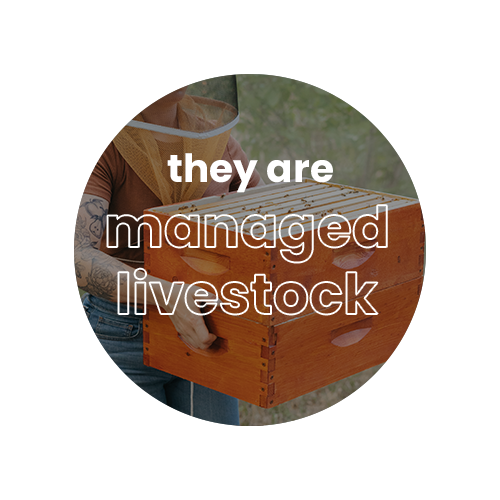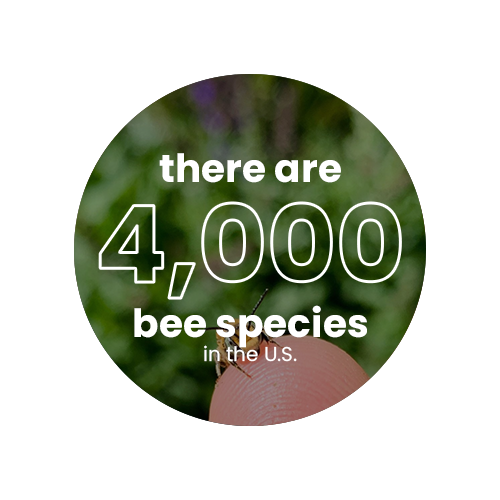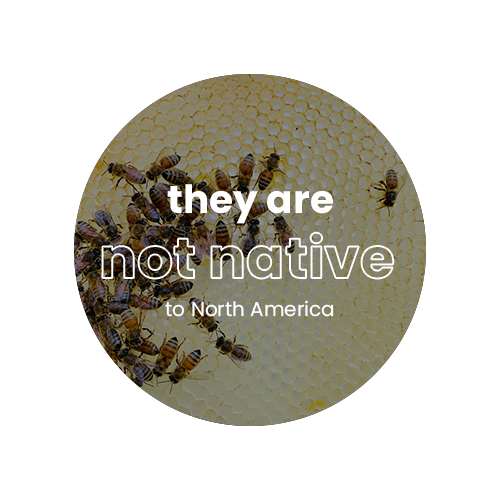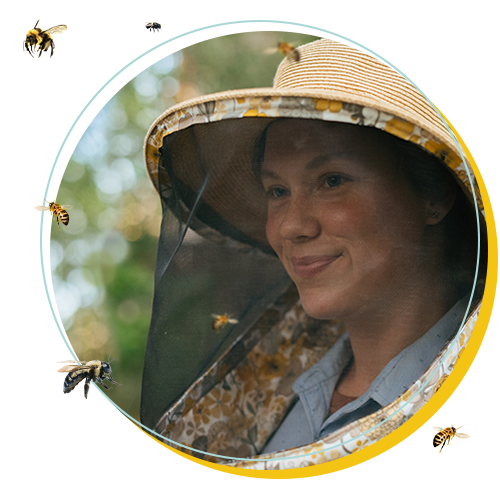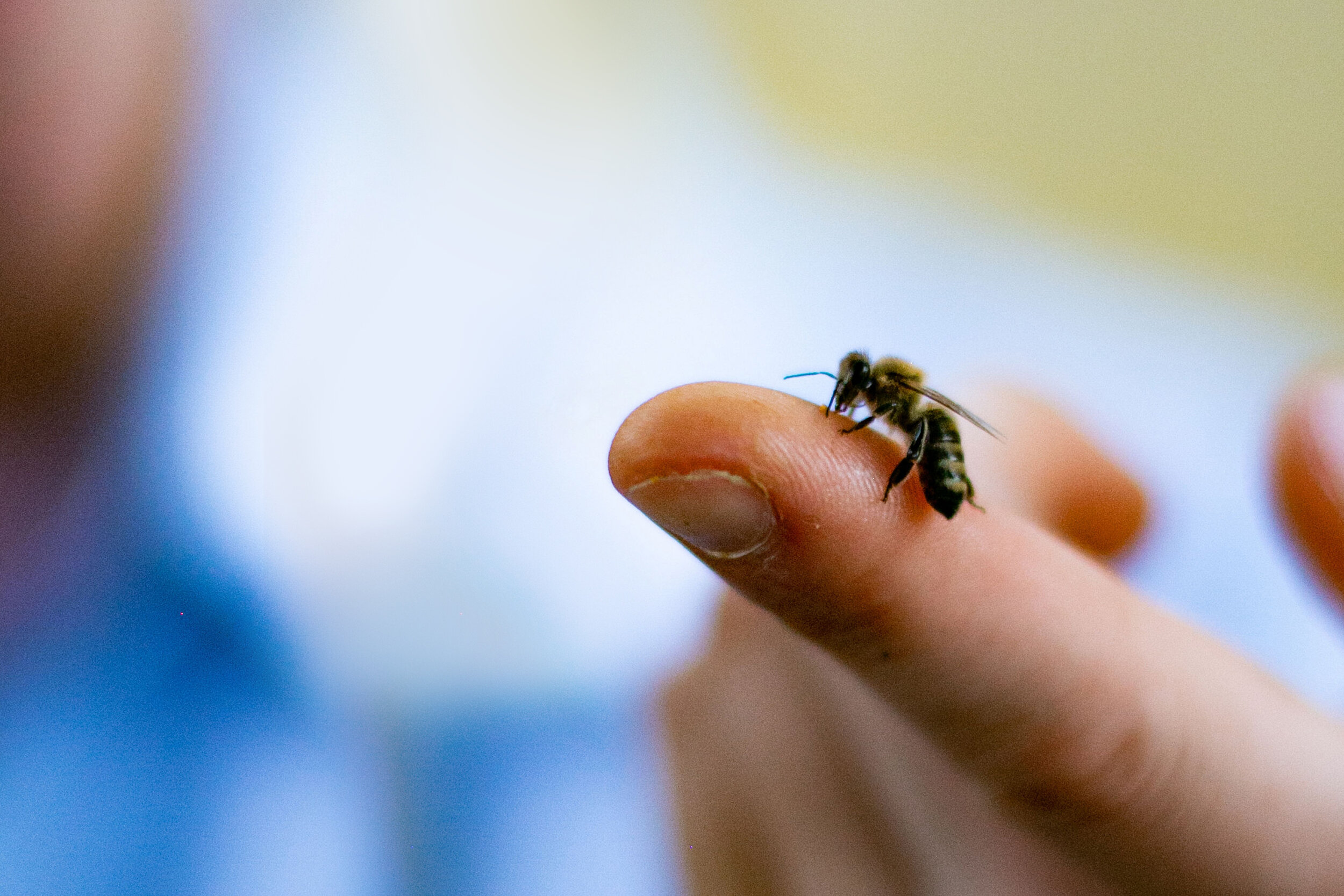
Our Mission
The Problem
Bees need help, and people need help understanding why and how to take action.

Insect pollination is critical to thriving ecosystems. Without it, 80% of all plants will not flower, produce fruit, or reproduce more plants.
The most prolific pollinating insects are bees, of which there are over 20,000 species identified worldwide.
Without bee pollination, over 30% of the food we enjoy so much would not exist. This includes fruits such as berries, apples, and avocados; vegetables such as broccoli, carrots, and brussel sprouts; nuts like almonds, chestnuts, and macadamias; legumes such as peas, lentils, and beans; herbs such as mint, chives, and oregano; and alfalfa to feed cattle, which provides us with beef, milk, and cheese.
They’re important to say the least, and they’re in decline.
Weakness in numbers
41% of bees in the Melittidae family, which provide us with blueberries, cranberries, and orchids.
17% of bees in the Halictidae family, which provide cattle with alfalfa and us with sunflowers and cherries.
46% of bees in the Bombus genus, which provide us with tomatoes and various berries that can only be pollinated by them.
40%+ of honey bee colonies managed by professional beekeepers in the United States are lost every year.

The decline in bees and other pollinators are due to a multitude of reasons:
Application of pesticides, which target and kill insects including bees, both at home and in agricultural spaces;
Human development destroying bee habitat, including the over 4 million miles of paved road and more than 40 million acres of sterile lawn in the United States.
Monocropping, which is the commercial farming of a single crop across enormous swaths of land, resulting in a food desert for bees and other pollinators. An example of this is the 91 million acres of corn in the United States, a crop which is pollinated by wind and therefore is not a viable food source for bees.
Decreasing plant biodiversity and disconnected ecosystems.
Climate change.
As complex as bee declines are, the solutions are simple and begin with the way we people live at home.
The challenge is reaching, educating, and empowering people to activate change.
A Contribution To A Solution
The Peoples Bees works to connect the people to the bees through apiculture, education, and advocacy.
Tending hives at Breckenridge Brewery.
Apiculture
Apiculture is the maintenance of honey bee colonies for agricultural purposes or pleasure. Apiculture is typically motivated by growing and cultivating hive products—such as honey, beeswax, pollen, propolis, and royal jelly—for human use. The Peoples Bees uses apiculture as an entry point to teach people about bees and their importance to us and the world at large.
Apiculture as a hobby requires expensive tools and equipment, the luxury of land to keep hives, and a lot of time to learn and practice beekeeping. We recognize that many people do not have access to these resources, and because beekeeping is such a therapeutic activity, we believe it is our responsibility to share what we have the privilege of doing. To honor this, we offer beekeeping experiences priced by a sliding scale to accommodate those limited by income and resources.
Teaching Beequinox, an educational happy hour celebrating bees.
Education
Education is food for life. In the words of entomologist and ecologist Douglas Tallamy: “Knowledge generates interest, and interest generates compassion.” The Peoples Bees is equipped with both access to bees and the gift of communication, so we’re using both to improve environmental literacy and create equal access to the natural world across diverse communities.
Our goal is to work with as many teachers and librarians in our local public sectors as possible to captivate and activate environmental stewardship in people of all ages and demographics. To accommodate diverse audiences, we offer Spanish and ASL translation options for our educational events.
Our annual honey donation to SAME Café.
Advocacy
Advocacy cannot go unmentioned when talking about the health of pollinators and the environment. Pollinators are generally overlooked and under appreciated in daily life, bee research is woefully underfunded, and our planet is suffering as a result. The Peoples Bees participates in community science and habitat restoration projects, amplifies factual information about bees and other pollinators, and advocates for bee-friendly lifestyle habits.
We advocate for bees and people:
We advocate for bees through strong opposition to pesticide use and promoting natural and regenerative land management practices. The Peoples Bees is a Certified Naturally Grown operation, meaning we practice organic methods of beekeeping and land management where all of our hives are located.
We advocate for people by donating honey every year to SAME Café, a nonprofit kitchen that prepares locally-sourced vegetable-forward meals to nourish the people of Denver—regardless of wealth. Their pay-what-you-can or labor-trade model offers healthy food security to people, and we’re proud that our raw, unfiltered, Certified Naturally Grown honey can be part of their menu.
This is the point in every presentation we give where we say: Honey bees are not the only bees.
While honey bees are famous for their divine honey, they represent less than 1% of the world’s bee population.
While honey bees are incredible pollinators who are critical to the United States’ food system, they are considered managed livestock here and are therefore not at risk of extinction.
While honey bees are fascinating insects, they are but 1 in 4,000 bee species that exist in North America.
While honey bees are prevalent and recognizable in North America, they are an introduced species—meaning they are not native to here and therefore impact native bee populations and ecosystems.
Our Values
-
We believe in people power. With our public sector partners, we work to engage diverse communities and encourage environmental stewardship through educational programs. And as beekeepers, we’re proud to be part of Denver’s extensive community of beekeepers and assist others in any way we can.
-
We believe in fair access to education and enriching experiences. We foster learning environments that are nothing short of welcoming and inclusive. And we only partner with companies who align with our values.
-
We believe in transparent communication to make our mission clear, help others grow, and make our offerings accessible to the people. From cost of services to the content we produce, we stay rooted in reality.
-
We believe in holding ourselves accountable for both our successes and failures. We’re comfortable answering a question with “I don’t know, but I will find out”, and we encourage others to do the same—because in nature, inflated egos are unwelcome.
Our People
Founded by a marketing professional driven to sell something important.
Backed by an incredible team of advisors and volunteers.
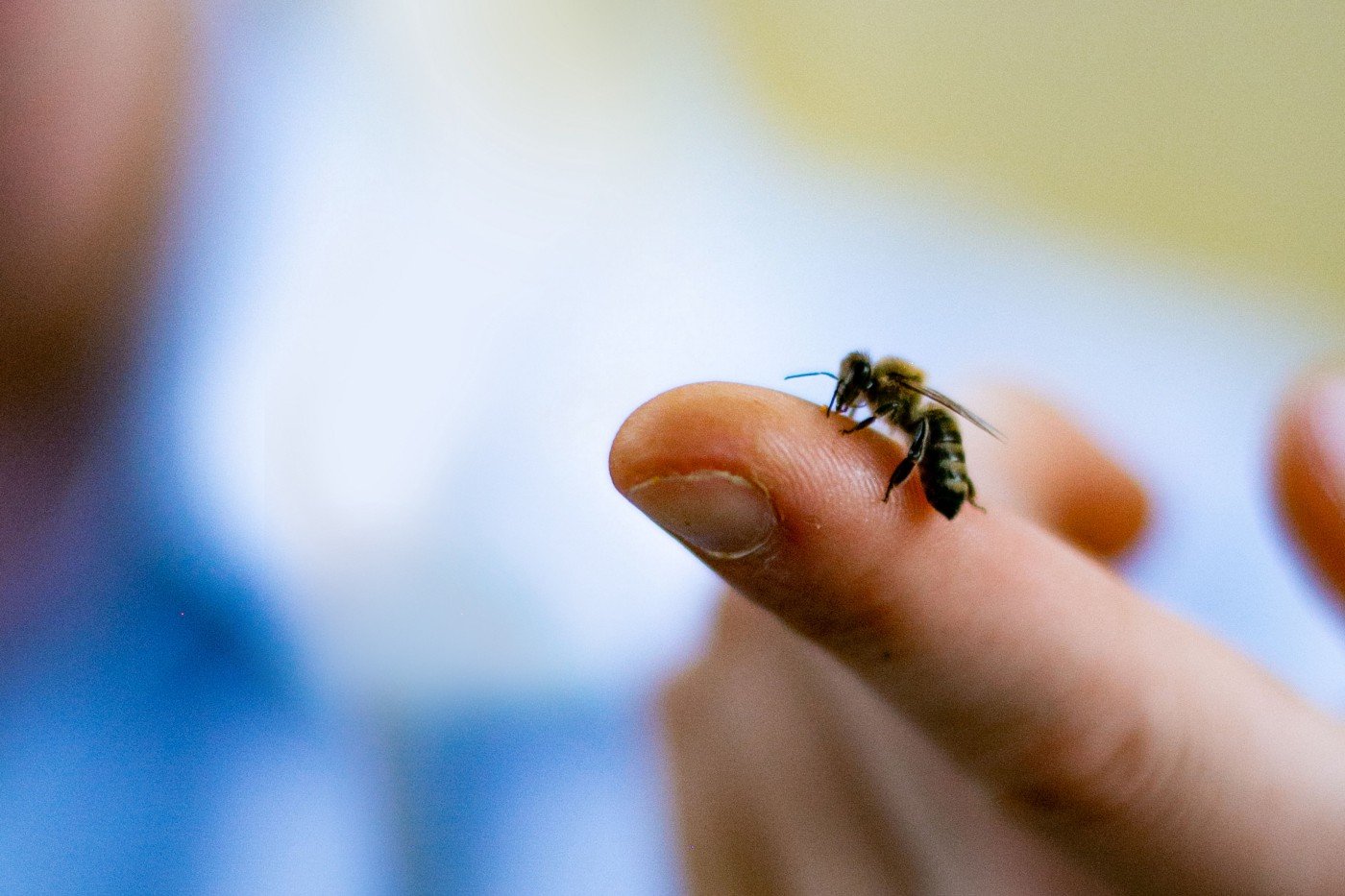
“The Peoples Bees make talking about environmental stewardship exciting and engaging.”
Hannah, event attendee and hive host

